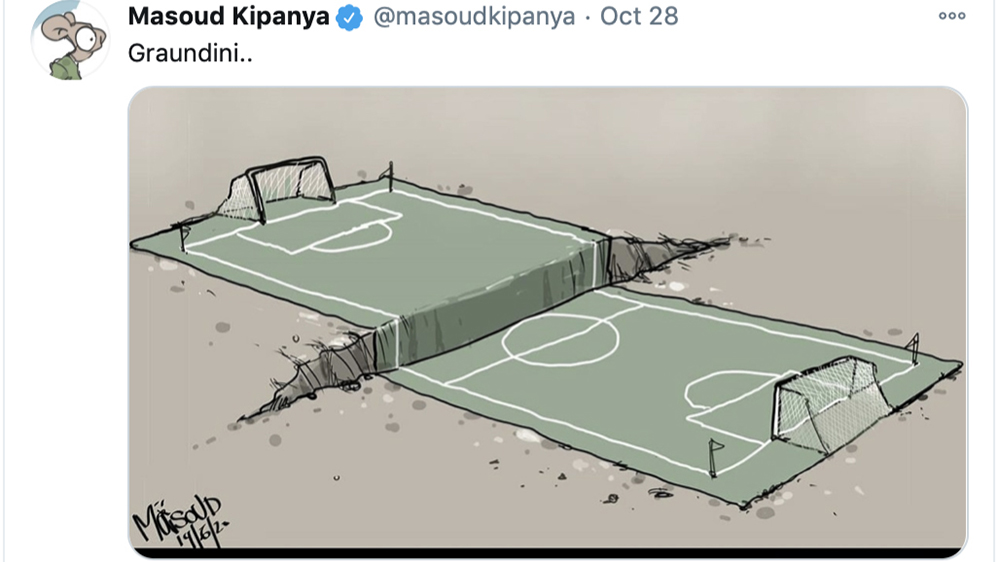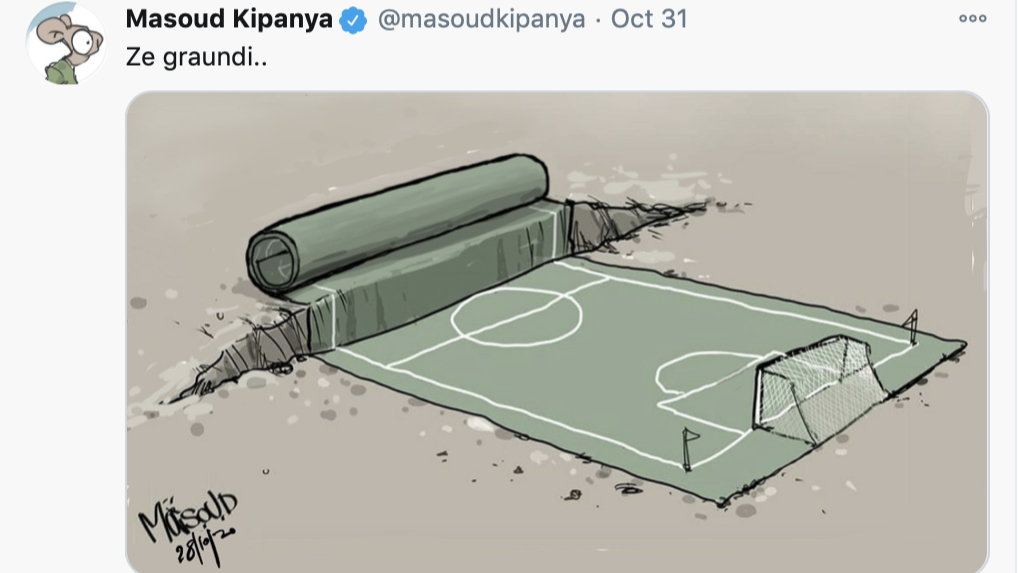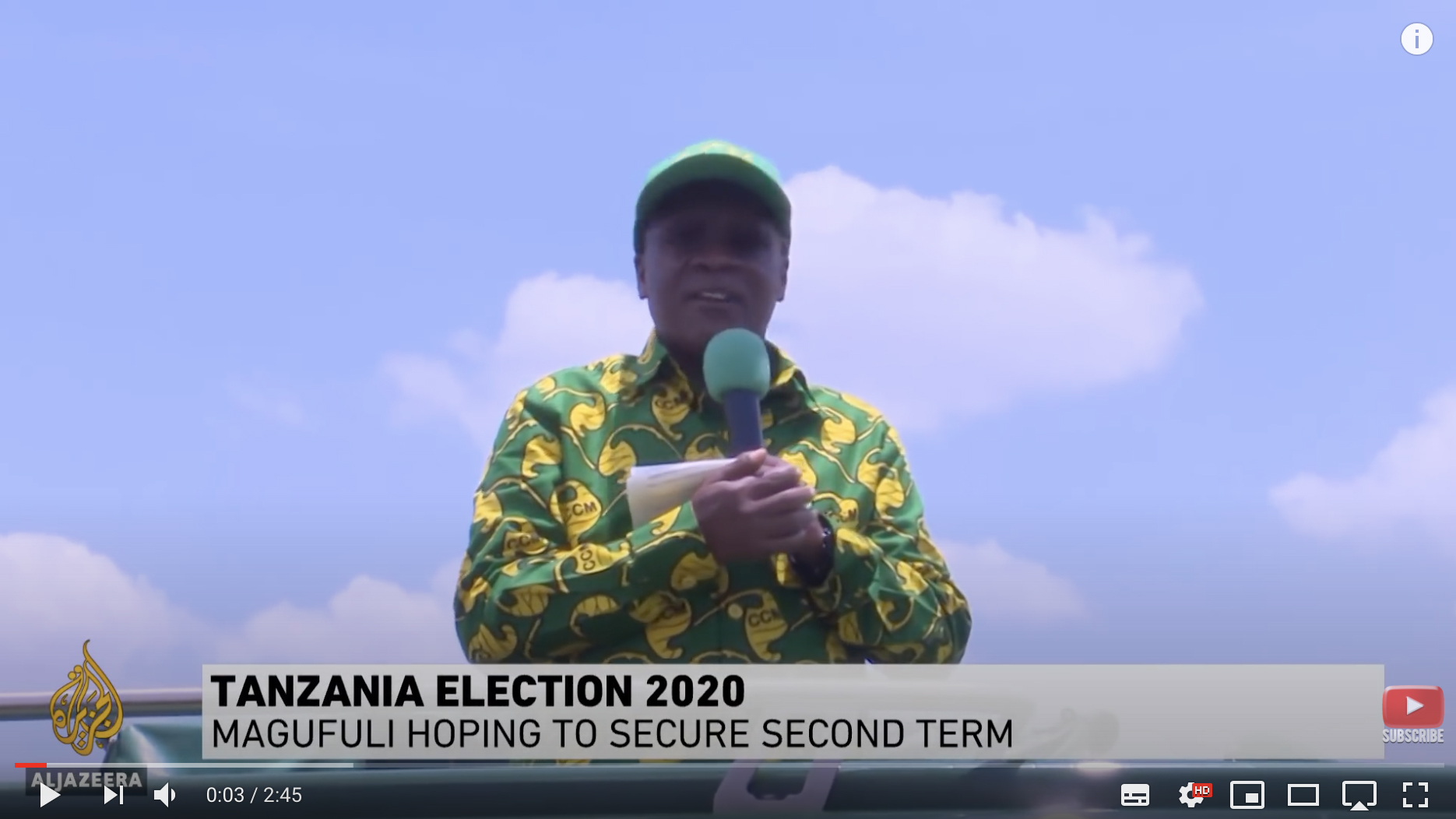The incumbent President John Magufuli got 84,4 per cent of the valid votes. It is the largest share of the votes a Presidential candidate has got since the multi-party system was introduced in 1994 in Tanzania. The question is how legitimate the election results are, writes Jonas Ewald in this analysis.
CCM – Africa’s oldest ruling party – won a landslide victory in Tanzania 28thof October, according to the official election results. The incumbent President John Magufuli got 84,4 per cent of the valid votes, against Chadema’s Tundu Lissu’s 13 per cent. Other parties’ candidates got 0,5 per cent or less of the votes. It is the largest share of the votes a Presidential candidate has got since the multi-party system was introduced in 1994 in Tanzania. An astonishing defeat for the opposition. In the last election 2015 John Magufuli got 58 per cent of the votes and the by then opposition candidate Edward Lowassa 40 per cent. On Zanzibar, CCM is claimed to have won 76 per cent of the votes and CCM’s presidential candidate Hussein Mwinyi was inaugurated Monday the 2 November. The question is how legitimate the election results are.
In the Parliamentary election, the opposition lost all but two of their seats. Down from around 119 in the last election, so the ruling party got some 95 per cent + of the seats. In the Zanzibar Parliament CCM got 100 per cent of the seats. Notable is that all the key opposition leaders have lost their MP-posts and strongholds. Freeman Mbowe, the chairman of the main opposition party CHADEMA, lost Hai constituency. ACT-Wazalendo chairman Zitto Kabwe lost the seat in Kigoma urban. Other opposition stronghold lost includes; Kilimanjaro region: Moshi Urban, Rombo, Same East and West; Arusha Region: Karatu, Serengeti – and in the more controversial Arusha urban; Tanga Region: Tanga Urban and Lushoto; Mbeya Urban, Iringa and Tarime. In Kawe in Dar es Salaam Halima Mdee from CHADEMA lost to CCM.
With this the ruling party completely control the Parliament. The parliament and the work in the committees have been a very important platform for the opposition – as well as crucial for horizontal accountability. The loss of MP-seats does not only mean a weaker representation in the Parliament and politics, but also a gross loss of access to information and party subsidies which will make it challenging for the already weak opposition to consolidate. The result might not be that surprising. It comes after years of a deliberate shrinking of the political space through a number of draconian laws and practices that have undermined freedom of speech, information, press, assembly and associations – as well as undermining the opposition through harassment, arbitrarily detentions and creation of fear.
Despite this, the opposition was, as usual, very optimistic before the election and claimed that they in their internal assessments estimated that they would get the majority of the votes. This seemed to be confirmed through the massive turnouts at the opposition election rallies. The opposition has, however, since long claimed that the election will be rigged – or stolen if not monitored properly by independent observers.
A number of irregularities
Few international observers, nor the large Tanzanian human rights organisations, were allowed/invited to monitor the election. International journalists were not accredited to move around without an apron from the government.One of the few international observers and the opposition point at a great number of irregularities during the whole election process, from nomination of candidates, registration, campaigns and the election itself. Opposition candidates have been detained, their campaign stopped, pre-filled ballots found, party observers denied entrance to polling stations, arrests of candidates including Seif Hamad, Halima Mdee and Upendo Peneza on election day, and critical media and civil society silenced. During the election day social media was shut down, making it difficult for both the opposition, media and civil society to monitor and report irregularities. Btw, astonishing that international companies like Tigo – partly Swedish owned, and Vodacom lend themselves to undermine transparency and the democratic process. The regional watchdog Tanzania Election watch pointed at a number of irregularities in their report.

Before election, unlevelled playing field

Embassies and Human rights organisations have stated that irregularities occurred that could question the legitimacy of the election. The US embassy state in a tweet that “credible allegations of significant election-related fraud and intimidation” make the election less credible. Canada, Norway and Sweden have as well voiced their concern. The UK have made a statement supporting the demand from the opposition to form and Independent Panel made up of Africa leaders to investigate election irregularities.The critique from the regional observers and the international community is reported in the Tanzanian press, so there are certain degrees of press freedom.
Tundu Lissu, the main opposition presidential candidate and vice-chairman of CHADEMA in a press conference the day after the election claimed that the election was rigged and was a blatant theft and stuffing of the vote in majority of the stations. He urges the international community, AU and neighbours to condemn the election. “It was not an election. It was a fraud and travesty of democracy ”. He did not accept the election result. You can listen to his statement in English at some 50,30 minutes into this YouTube clip from the press conference:
Zitto Kabwe, the chairman of the second largest opposition party, ACT-Wazalendo, Tweeted that “Tanzania is full-blown one-party dictatorship. We shall resist this. I ask the international community NOT to recognize this Tanzanian election.” In a press conference on Sunday he renewed his urge for an Independent Panel made up of Africa leaders to investigate election irregularities and oversee fresh elections.Independent Panel made up of Africa leaders to investigate election irregularities and oversee fresh elections.
It can be noted that the well-known opposition candidates lost with a comparative huge margin, which they claim is an indicator on that the elections were rigged.
Note that this is the point of view of the disappointed opposition. The National Electoral Commission, not independent, strongly denies that any systematic irregularities have occurred. CCM and its supporters argues that the victory is due to the successful work of the government, the party and the President the last election period. Working against corruption, improving governance, get things done through President Magufuli “the bulldozer”, free secondary school education, getting better terms from the raw material extraction industry through tough negotiations and started a transformation of the economy towards a modern industrialised economy. The very visible mega-infrastructural projects, not the least the first electrified fast-speed train from Dar es Salaam towards Dodoma, and later to Rwanda and DRC, the flyovers in Dar es Salaam, road and electric grid construction all over the country, the controversial hydro-power dam in Stiegler’s gorge (at Rufiji river in Selous game reserve) and now the oil-pipeline from Lake Albert in Uganda to Tanga, all parts of a strategic plan to industrialise Tanzania – with the goal to achieve a middle income status by 2025, an objective that somehow was achieved already this year when the World Bank classified Tanzania as a lower middle-income country. Even if most of these mega-investment project has little direct bearing on the incomes of the majority of the population, it might have given hope and optimism. At issue is of course if these mega-projects really will bring transformation and inclusive growth to the severely underdeveloped economy of Tanzania, or if it will bring Tanzania into a new debt crisis.
Democracy fatigue and voter apathy
Another explanation can be that there exists some sort of democracy fatigue, that large part of the electorate like to see hands-on change rather than political bickering. The opposition would argue that it is rather the political culture of fear and intimidation of critical voices. It is important to note that the participation in the election was very low. Only some 50 per cent of the 29 million registered voters actually voted, compared with last election when 67 per cent voted. The post-election research should look into why so many seemed to have turned out on the streets to participate in the election campaigns, and so few actually went to the polling station. The very first observations seem to say that it was in particular young voters who did not go to the polls. We do not know what way they should have voted. But it can be observed that in last election the opposition got some 3 million more votes. It could of course also be an expression of distrust in the opposition.
Zanzibar – opposition arrested
The situation in Zanzibar is much more fragile, due to the different political and social history of the archipelago. The opposition has claimed that they have won all elections since 2000, but that the election results have been rigged to the ruling party´s advantage. The 2015 election was cancelled, when the results indicated that the opposition had won. The re-run of the election 2016 was boycotted by the opposition. So, the political climate is highly charged. Military from the mainland was shipped in to monitor the situation. Despite this at least 3, maybe 9, people have been killed in election-related violence the last days. The day before the election, Seif Sharif Hamad, the main opposition presidential candidate on the Islands where arrested when he should vote. He was later released. And the opposition was, again, sure that they would win this time. On the eve of the election, the leadership of ACT, including the presidential candidate, Seif Sharif Hamad, Vice Chairman Juma Duni Haji among others were arrested when they protested against the irregularities in the election and called for peaceful protest. Central Committee member Ismail Jussa was almost beaten to death. Up to 80 people have so far been arrested. According to the official election result CCM’s candidate Hussein Mwinyi won with 76 per cent of the votes in Zanzibar. Hussein Mwinyi is the son of Ali Hassan Mwinyi, a retired president of the governments of Tanzania and Zanzibar.
The outcome of the elections will generate massive protests, that risk leading to similar levels of frustration conflicts and violence – and deaths like the elections in 2000 and 2005 – the coming days. It is important that we all keep an eye on what is happening, both on Zanzibar and the mainland.
Call for a fresh election
It can also be noted that the political debate has become even more polarised, from both sides. CCM supporters criticize the opposition for being an instrument of neo-colonial interest and financed by the international community. The election was fair and an expression of what the citizens in Tanzania have trust in, they argue.On Saturday, the opposition denounced the election results, called for an independent panel of African leaders to investigate election irregularities and oversee fresh elections, in the absence of an Independent National Electoral Commission and called for a peaceful demonstration on Monday the 2 November. In a joint statement, the Chairmen for CHADEMA and ACT-Wazalendo stated: “We will not allow the repressive, illegitimate regime of John Magufuli to deprive us of our right to protest peacefully for the return of democracy to … Tanzania. We will not be deterred … The people’s voice will be heard. We will not relent in our fight to restore democracy in our land,”
Ibrahim Lipumba, the chairman for Civic United Front called for a new constitution. In a response to the call for peaceful demonstrations, the police arrested the leadership of the two main opposition parties, accusing them of instigating violence and unlawful demonstrations. Among the arrested are the chairpersons of CHADEMA, Freeman Mbowe a and ACT’s Zitto Kabwe – and dozens of others opposition leaders and activist around the various regions in the country. Police were deployed in major cities on Monday to control that no demonstrations took place. The situation on the streets was calm. Tundu Lissu was later released after interrogation.
The preparation for next election, when Magufuli’s term is over – if he does not change the constitution – has already started. But there are a great number of challenges for democracy on the way …
Jonas Ewald
Program Director Master Program in Peace and Development Work Peace and Development Studies at Linnaeus University in Sweden. His research and publications focus on the politics of democratisation, human rights inclusive development and peace processes in Eastern and Southern Africa with particular focus on Tanzania, Rwanda and the Great Lakes conflict complex. His books include Challenges for the Democratisation Process in Tanzania.
Other publications can be found here.


